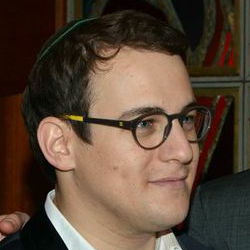 SPONSORED: Ensemble. Melting Rhapsody - Malcolm Miller enjoys Jack Liebeck and Danny Driver's 'Hebrew Melody' recital, plus a recital by David Aaron Carpenter.
SPONSORED: Ensemble. Melting Rhapsody - Malcolm Miller enjoys Jack Liebeck and Danny Driver's 'Hebrew Melody' recital, plus a recital by David Aaron Carpenter.
All sponsored features >>
Matthew Locke
English baroque composer Matthew Locke was born in Exeter in about 1621 and sang in Exeter Cathedral choir under Orlando Gibbons' brother Edward. He is known to have travelled to the Netherlands when he was eighteen. Collaborating with Christopher Gibbons (Orlando's son), Locke wrote the music for James Shirley's 1653 masque Cupid and Death. No other scores of dramatic works survive from this period.
Locke collaborated with other composers on William Davenant's early opera The Siege of Rhodes (1656) and went on to write music for other Davenant operas and a processional march played at the coronation of Charles II (for whom he was composer and organist of the king's chapel).
Locke's treatise on music theory, Melothesia, was published in 1673, and he died in August 1677.
A selection of articles about Matthew Locke
Spotlight. Virtuosic Flair - Gerald Fenech recommends dance music played by Daniel Hope and the Zurich Chamber Orchestra. 'Daniel Hope's fiddle-playing is just phenomenal ...'
CD Spotlight. Underground Virtuosity - John Dante Prevedini listens to viol consort suites by Matthew Locke. 'Locke's imitative counterpoint shines through with a crispness and clarity ...'
CD Spotlight. Merriment and Joy - Music by Nicola Matteis, John Banister, Gottfried Finger, Matthew Locke and Johann Schop, warmly recommended by Gerald Fenech. 'Elegant and full of warmth, these dances are imaginatively orchestrated and extremely well crafted, and the playing is wonderfully affective.'
Ask Alice - A CD recommendation from classical music agony aunt Alice McVeigh
CD Spotlight. Cloven Hoofs? - English trios, heard by Robert Anderson. '... Trio Setttecento has adapted skilfully towards whatever idiom was required throughout the disc.'
CD Spotlight. A delightful airing - The keyboard music of Matthew Locke, reviewed by Robert Anderson. '... crisp and lively ...'


